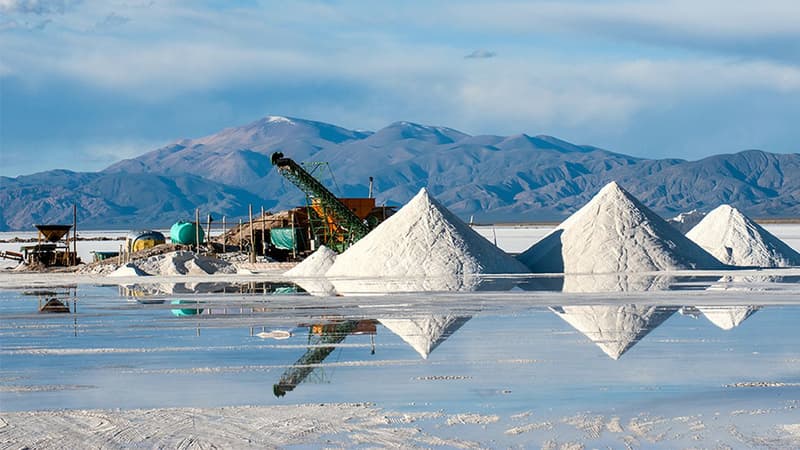France wants to partner with Chile to extract and exploit lithium, an essential mineral for the manufacture of batteries for electric vehicles, French Foreign Trade Minister Olivier Becht said on Friday during a visit to the southern-American country.
France intends to “contribute to the Chilean adventure of extracting and exploiting lithium, obviously in connection with European and particularly French needs,” he assured, recalling that Chile had the world’s largest reserves of this mineral that poisons electricity. the battery industry and should allow cars to ditch CO2-emitting oil.
“It’s useless to make battery ‘gigafactories’ if you don’t have the materials used to make the batteries,” he said from the capital Santiago. Several lithium battery manufacturing plants are planned in northern France.
In Chile, the largest lithium reserves in the world
Highlighting the strong competition in the sector, Olivier Becht assured that France had a technological offer “totally different from that of other countries and companies”.
“We have the possibility of extracting lithium by considerably reducing water consumption”, he argued in particular, also highlighting an “environmentally friendly approach”.
In late April, Chilean President Gabriel Boric announced a national strategy for lithium exploitation that calls for a public-private partnership. Currently, through a concession system, two private companies extract the white powder from the Atacama salt flats, 1,700 km north of Santiago.
During his visit, Olivier Becht met with the Ministers of Mines, Energy, Transport and the Economy of Chile. He also talked with them about the cooperation between the two countries for the production of “green” hydrogen. This energy of the future is produced from renewable electricity, and not from fossil fuels like “grey” hydrogen. However, it remains to find the economic model of it.
Chile is France’s third partner in Latin America.
Earlier this week, Olivier Becht traveled to Brazil where he met with several ministers, including that of Mines and Energy.
Source: BFM TV


